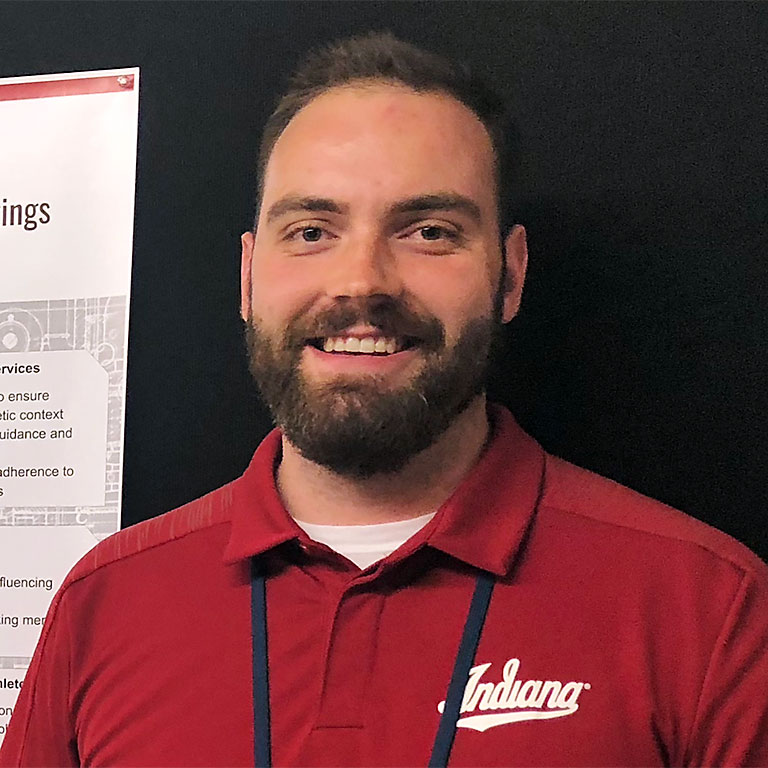Rules regarding the way college athletes can financially benefit from their name, image and likeness changed last year - but the effects of these changes on these students’ mental health and well-being remain largely unknown. Jeff Ruser, a doctoral candidate in counseling psychology, recently received funding to study this topic and learn more about how social media could benefit - or hurt - student athletes as they grapple with the new rules.
Ruser, a fourth-year doctoral candidate in counseling psychology with a Ph.D. minor in Sport and Performance Psychology, was already studying how student-athletes who played for high-profile schools faced the pressures of winning while also dealing with criticism on social media. When the NCAA started allowing these students to earn money based on their NIL last summer, Ruser and his advisor, Associate Professor Jesse Steinfeldt, found it relevant to include how NIL changes might affect social media use, as student-athletes continue to market and earn money through the use of their social media platforms.
Ruser recently received a grant for this work from the NCAA Graduate Student Research Grant Program for his project, “Exploring the emotional, psychological, and social impacts of social media use on highly visible student-athletes in the NIL-era."



